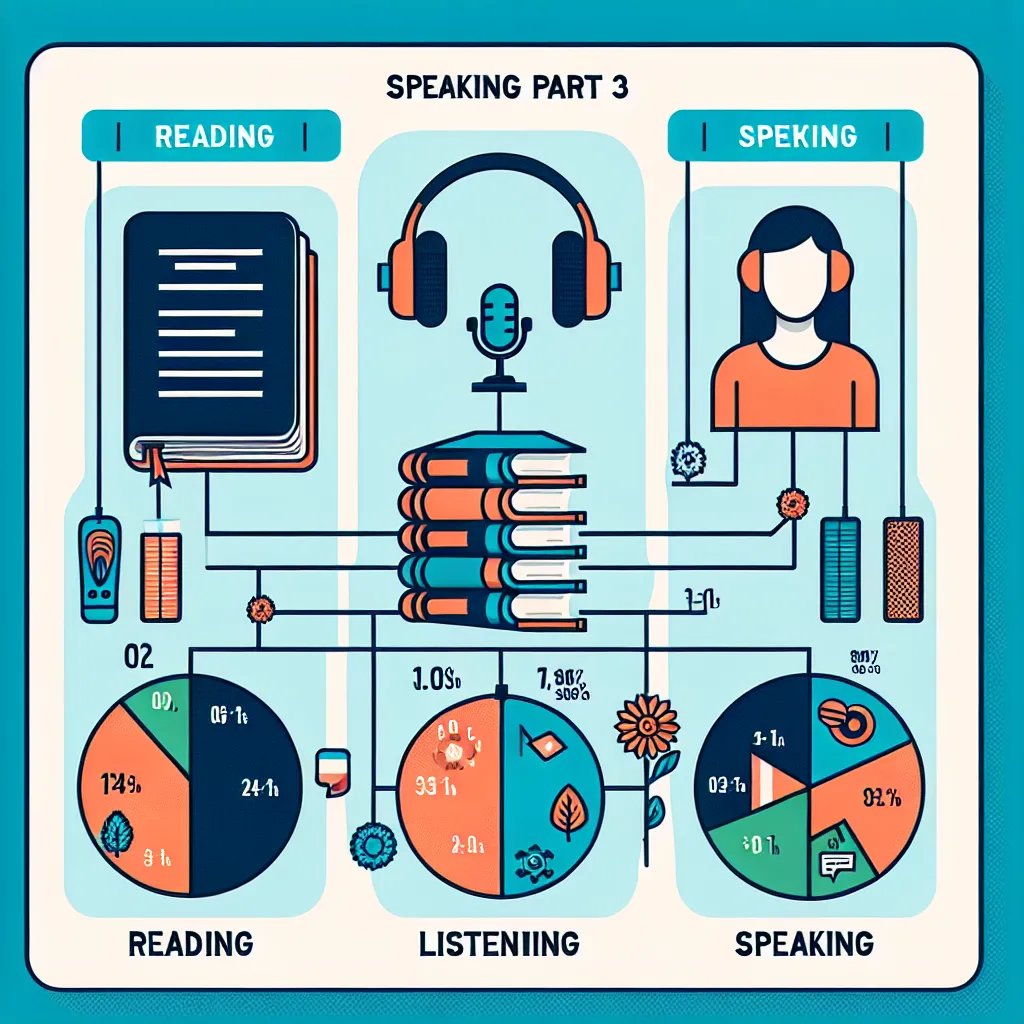Are you preparing for the TOEFL exam and looking to boost your speaking skills in a short timeframe? You’re in the right place! This comprehensive guide will walk you through effective strategies to improve your TOEFL Speaking score in just one month. Whether you’re a beginner or looking to enhance your existing skills, these tips and techniques will help you make significant progress in your TOEFL Speaking preparation.
 TOEFL Speaking Preparation
TOEFL Speaking Preparation
Understanding the TOEFL Speaking Section
Before diving into improvement strategies, it’s crucial to understand the structure of the TOEFL Speaking section. The test consists of four tasks:
- Independent Speaking Task (Personal Choice)
- Independent Speaking Task (Personal Preference)
- Integrated Speaking Task (Campus Situation)
- Integrated Speaking Task (Academic Course)
Each task assesses different aspects of your speaking abilities, including fluency, pronunciation, vocabulary, and coherence. Knowing what to expect will help you focus your preparation efforts effectively.
Create a Structured Study Plan
To make the most of your one-month preparation, it’s essential to create a well-organized study plan. Here’s a sample weekly schedule:
- Monday & Tuesday: Focus on Independent Speaking Tasks
- Wednesday & Thursday: Practice Integrated Speaking Tasks
- Friday: Review and work on weak areas
- Saturday: Take a full-length practice test
- Sunday: Rest and light review
Consistency is key. Dedicate at least 2-3 hours each day to TOEFL Speaking practice.
Improve Your Fluency and Pronunciation
Practice Speaking English Daily
Immerse yourself in the English language by speaking it every day. Here are some effective ways to do this:
- Talk to yourself in English about your daily activities
- Record yourself speaking and listen for areas of improvement
- Use language exchange apps to practice with native speakers
- Join online English speaking clubs or forums
Focus on Stress and Intonation
Pay attention to the rhythm and melody of English speech. Practice stressing the right words and using appropriate intonation patterns. This will make your speech sound more natural and easier to understand.
Expand Your Vocabulary
A rich vocabulary is crucial for expressing your ideas clearly and precisely. Here’s how to boost your vocabulary in a month:
- Learn 10-15 new words daily, focusing on TOEFL-relevant topics
- Use flashcards or vocabulary apps for spaced repetition
- Practice using new words in context through speaking exercises
- Read extensively on various academic topics to encounter words in different contexts
 TOEFL Vocabulary Study
TOEFL Vocabulary Study
Master TOEFL Speaking Templates
Developing a set of templates for each speaking task can significantly improve your performance. These templates provide a structure for your responses, helping you organize your thoughts quickly. Here’s a basic template for Independent Speaking Tasks:
- Introduction: Clearly state your opinion
- First reason: Provide your main point with an example
- Second reason: Offer another supporting point with an example
- Conclusion: Briefly restate your opinion
Practice using these templates until they become second nature, allowing you to focus on content rather than structure during the exam.
Utilize TOEFL Speaking Practice Materials
Official TOEFL Resources
The best way to prepare for the TOEFL Speaking section is by using official materials. These resources accurately reflect the actual test format and difficulty level:
- Official TOEFL iBT Tests (available on the ETS website)
- TOEFL iBT Free Practice Test
- TOEFL Go! Official App
Supplementary Resources
While official materials should be your primary focus, supplementary resources can provide additional practice:
- TOEFL speaking practice websites (e.g., TSTPrep, NoteFull)
- YouTube channels dedicated to TOEFL preparation
- TOEFL preparation books with audio materials
Develop Critical Thinking Skills
The TOEFL Speaking section often requires you to analyze information and form opinions quickly. Enhance your critical thinking skills by:
- Practicing summarizing news articles or academic lectures
- Engaging in debates on various topics
- Analyzing arguments in editorials or opinion pieces
- Solving puzzles or brain teasers to improve quick thinking
Record and Analyze Your Responses
One of the most effective ways to improve is by recording your practice responses and analyzing them critically. Follow these steps:
- Record your answers to practice questions
- Listen to your recordings and note areas for improvement
- Compare your responses to sample high-scoring answers
- Identify specific aspects to work on (e.g., fluency, content, organization)
- Re-record your answers, focusing on the areas you’ve identified
Simulate Test Conditions
As your test date approaches, start practicing under conditions that mimic the actual TOEFL Speaking section:
- Use a timer to ensure you’re speaking within the allotted time for each task
- Practice in a quiet room with minimal distractions
- Speak into a microphone or headset to get used to the experience
- Take full-length practice tests to build stamina and time management skills
 TOEFL Speaking Simulation
TOEFL Speaking Simulation
Manage Test Anxiety
Feeling nervous about the speaking section is normal, but excessive anxiety can hinder your performance. Try these techniques to manage test anxiety:
- Practice deep breathing exercises before and during the test
- Visualize yourself succeeding in the speaking tasks
- Maintain a positive mindset and use affirmations
- Get enough sleep and eat well in the days leading up to the test
Final Tips for Success
As you enter the final week of your one-month preparation:
- Review your progress and focus on any remaining weak areas
- Practice speaking at a steady pace, neither too fast nor too slow
- Work on transitioning smoothly between ideas
- Ensure you’re familiar with the test format and instructions
Remember, improvement in speaking skills takes time and consistent effort. By following this comprehensive guide and dedicating yourself to daily practice, you can make significant strides in your TOEFL Speaking abilities within a month.
Stay motivated, track your progress, and don’t hesitate to seek feedback from teachers or language exchange partners. With determination and the right strategies, you’ll be well-prepared to tackle the TOEFL Speaking section with confidence. Good luck with your preparation!




